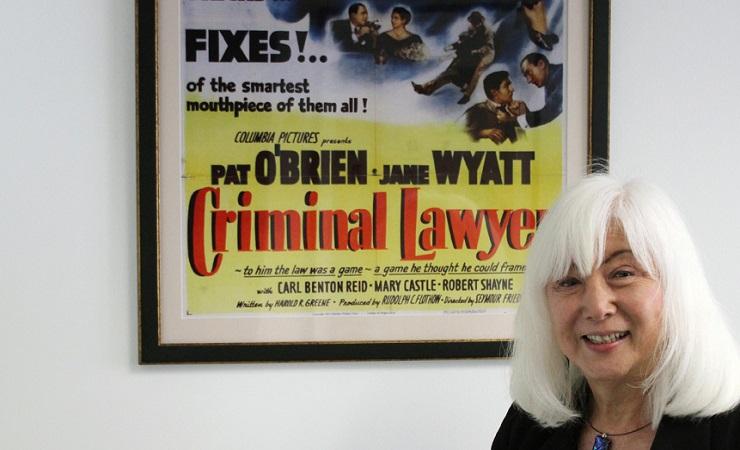ASIACALLING
Award winning attorney activist: Mia Yamamoto
"Japanese-American attorney and activist Mia Yamamoto has lived an extraordinary life. At age 74, she has an insider’s view of some remarkable aspects of US history."
Lena Nozizwe

Japanese-American attorney and activist Mia Yamamoto has lived an extraordinary life. At age 74, she has an insider’s view of some remarkable aspects of US history.
From Los Angeles, California, Lena Nozizwe has her story.
Mia Yamamoto was born a prisoner, in an Arizona internment camp, during World War II.
Throughout the war, 120 000 Americans of Japanese ancestry were detained in prisoner-like conditions.
According to the American government at the time, the presented a risk to national security.
“I was born in camp,” Mia told me. “It was place where I feel when looking back my mother would say that ‘I am having a child who is born in captivity. I don’t know if we will ever be released. I don’t have any idea if the war goes badly what they are going to do with us.’”
The internment camps were closed in 1946. But Yamamoto says prejudice against Japanese-American’s continued well after the war.
The family moved to East LA, and made it a point to never speak Japanese in public.
“‘Kill the Japs,’ I used to hear that all the time,” she recalls.
She came into the world at that Arizona internment camp as a boy named Michael, not Mia.
But at the age of eight or nine the battle to express her true self began at home.
“I remember my parents not liking me wearing my mother’s clothes. Things like that,” Mia said. “That’s the reason why at a certain age I realized. Realizing that there was anybody like me in the world was a complete revelation to me.”
That person was Christine Jorgensen, a former World War Two-era GI. She was the first American transgender woman to be widely-publicized.
“And it was a complete absolute tragic event in the eyes of my mom who started crying as soon as she heard that revelation, telling her that I was like Christine Jorgensen.”
Even though Yamamoto identified as female, it was kept a secret to everyone outside the family.
She kept it hidden through high school and college—and even as a soldier in the Vietnam War.
Deemed an enemy of the country at birth, here she was defending America in war.
“I felt like being part of the masses that were going off to war on behalf of their country was the right thing to do. That no matter what happened, no ,what they did to us, we remained loyal.”
But she admits she wasn’t a great soldier.
“I was pretty lame. I couldn’t throw the grenades far enough to keep our side safe.”
After Vietnam, Yamamoto earned a law degree and went to work at the Public Defender’s office.
Her new battlefield was helping clients who couldn’t afford an attorney—still as Michael Yamamoto.
Privately, she was having the fight of her life. Living inauthentically as a man left her wanting to kill herself—in a variety of ways.
“It was usually, my overdose scenario was usually using drugs. I hated to leave a skull with a hole in it or to have my poor family discover me hanging from something,” she confessed.
It was not until she reached a pivotal birthday that Mia, in effect, killed off Michael.
“I turned 60. And they gave a big party for me. And everybody loves me and I remember hating myself thinking you are a coward. You are completely inauthentic. And at that moment I said I am going to die as a woman, whatever I have got to do to get here. I am going to die as a woman.”
At 74 she is very much alive.
When we meet, her well-coiffed, striking white hair is complemented by a chic black jacket and dress, accessorized with a pair of knee high leather black boots—and a twinkle in her eyes.
She works out of a gleaming high rise in downtown Los Angeles as a private trial lawyer.
Yamamoto takes on death penalty cases and social justice issues. She says her quest for justice is a product of being born in an internment camp.
“I do have that legacy,” she continued, “I call it my prison legacy which means that my connection to the world is my connection to prisoners. I have a connection to them and they are my people as much as anyone else.”
She joined other activist lawyers at Los Angeles International Airport earlier this year to offer free help when the Trump administration’s first travel ban on mostly-Muslim countries unexpectedly went into effect.
She has offered legal help to DACA recipients— undocumented migrants brought to the United States as young people. She’s speaking out against Trump’s proposed ban on transgender troops.
And she’s received a slew of awards for her work.
The once suicidal Yamamoto says her is life unimpeachable testimony of how things do get better.
- Mia Yamamoto
- Japanese American internment camps
- WWII internment camps
- transgender activist
- Lena Nozizwe
Komentar (0)
KBR percaya pembaca situs ini adalah orang-orang yang cerdas dan terpelajar. Karena itu mari kita gunakan kata-kata yang santun di dalam kolom komentar ini. Kalimat yang sopan, menjauhi prasangka SARA (suku, agama, ras dan antargolongan), pasti akan lebih didengar. Yuk, kita praktikkan!